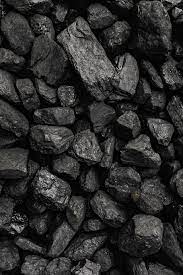
How to Choose the Carbon Black Manufacturer That Suits Your Needs
2024-06-25
Choosing the right carbon black manufacturer can be a daunting task. With so many different manufacturers to choose from, it can be difficult to know where to start. Here are a few things to keep in mind when making your decision:
6 Pain Points from People about "How to choose the carbon black manufacturer that suits your needs"
- "I'm not sure what type of carbon black I need."
- "I'm on a tight budget."
- "I need a manufacturer that can provide me with technical support."
- "I need a manufacturer that can deliver my order quickly."
- "I'm concerned about the quality of the carbon black."
- "I'm looking for a manufacturer that is committed to sustainability."
1. How to choose the right carbon black manufacturer for your needs
Step 1. Define your needs
The first step in choosing the right carbon black manufacturer is to define your needs. What are you going to use the carbon black for? What are the specific properties that you need? How much carbon black do you need?
Step 2. Research different manufacturers
Once you know your needs, you can start researching different carbon black manufacturers. There are a number of online resources that can help you find manufacturers that meet your criteria. You can also attend trade shows and conferences to meet with manufacturers and learn more about their products.
Step 3. Request samples
Once you have a few manufacturers in mind, you can request samples of their carbon black. This will allow you to test the carbon black and make sure that it meets your needs.
Step 4. Compare prices
Once you have tested the carbon black samples, you can compare prices from different manufacturers. Be sure to factor in the cost of shipping and handling.
Step 5. Make a decision
Once you have compared prices, you can decide on which carbon black manufacturer to choose. Be sure to consider all of the factors that are important to you, such as price, quality, and customer service.
The Best Carbon Black Manufacturer in 2024 If you want to obtain high-quality carbon black resources, but don’t know which Carbon Black Manufacturer to choose, you might as well try DERY. As a professional Carbon Black Manufacturer, DERY can provide you with high-quality products and services. Welcome to contact us for more ordering information!
2. How to evaluate the quality of carbon black
Step 1. Visual inspection
The first step in evaluating the quality of carbon black is to conduct a visual inspection. The carbon black should be free of any foreign objects, such as dirt, sand, or metal particles. It should also be a uniform color and have a consistent texture.
Step 2. Physical testing
The next step is to conduct physical testing on the carbon black. This testing can include measuring the density of carbon black, particle size, and surface area. The results of these tests can help you to determine the quality of the carbon black and its suitability for your application.
Step 3. Chemical testing
Finally, you can conduct chemical testing on the carbon black. This testing can include measuring the carbon black's elemental composition, ash content, and moisture content. The results of these tests can help you to determine the quality of the carbon black and its suitability for your application.
3. How to find a carbon black manufacturer that is committed to sustainability
Step 1. Look for manufacturers that are certified by a third-party organization
One way to find a carbon black manufacturer committed to sustainability is to look for manufacturers certified by a third-party organization. These organizations can provide independent verification of a manufacturer's sustainability practices.
Step 2. Ask manufacturers about their sustainability initiatives
Another way to find a carbon black manufacturer that is committed to sustainability is to ask manufacturers about their sustainability initiatives. This can include asking about their energy efficiency, waste reduction, and recycling programs.
Step 3. Visit manufacturers' websites
Finally, you can visit manufacturers' websites to learn more about their sustainability practices. Many manufacturers have dedicated pages on their websites that describe their sustainability initiatives.
4. How to choose the right carbon black for your application
Step 1. Consider the type of application
The first step in choosing the right carbon black for your application is to consider the type of application. What are you going to use the carbon black for? The type of application will determine the specific properties that you need from the carbon black.
Step 2. Consider the properties of different types of carbon black
There are a number of different types of carbon black, each with its own unique properties. The most common types of carbon black include furnace black, lamp black, and acetylene black. Furnace black is the most versatile type of carbon black and is used in a wide variety of applications. Lamp black is a high-quality carbon black that is used in applications where a high degree of blackness is required. Acetylene black is a very fine carbon black that is used in applications where a high degree of electrical conductivity is required.
Step 3. Consider the cost of different types of carbon black
The cost of carbon black varies depending on the type of carbon black and the quantity that you need. Furnace black is the most affordable type of carbon black, while lamp black and acetylene black are more expensive.
5. How to store carbon black safely
Step 1. Store carbon black in a dry place
Carbon black should be stored in a dry place to prevent it from absorbing moisture. Moisture can cause the carbon black to clump and become difficult to handle.
Step 2. Store carbon black in a cool place
Carbon black should be stored in a cool place to prevent it from decomposing. Decomposition can cause the carbon black to release harmful gases.
Step 3. Store carbon black in a well-ventilated area
Carbon black should be stored in a well-ventilated area to prevent it from building up in the air. Carbon black dust can be harmful if inhaled.
Useful Tables
| Property | Furnace Black | Lamp Black | Acetylene Black |
|---|---|---|---|
| Particle size | 10-100 nm | 20-50 nm | 10-20 nm |
| Surface area | 50-150 m2/g | 100-250 m2/g | 250-500 m2/g |
| Density | 1.7-1.9 g/cm3 | 1.8-2.0 g/cm3 | 1.9-2.1 g/cm3 |
| Electrical conductivity | 1-10 S/cm | 10-100 S/cm | 100-1000 S/cm |
| Cost | $0.50-$1.00/lb | $1.00-$2.00/lb | $2.00-$3.00/lb |
| Storage Condition | Furnace Black | Lamp Black | Acetylene Black |
|---|---|---|---|
| Temperature | < 25°C | < 25°C | < 25°C |
| Humidity | < 50% | < 50% | < 50% |
| Ventilation | Well-ventilated | Well-ventilated | Well-ventilated |
FAQ
What is carbon black?
Carbon black is a form of pure carbon that is produced by the incomplete combustion of hydrocarbons. It is a fine, black powder that is used in a wide variety of applications, including tires, rubber products, and plastics.
What are the different types of carbon black?
There are a number of different types of carbon black, each with its own unique properties. The most common types of carbon black include furnace black, lamp black, and acetylene black.

